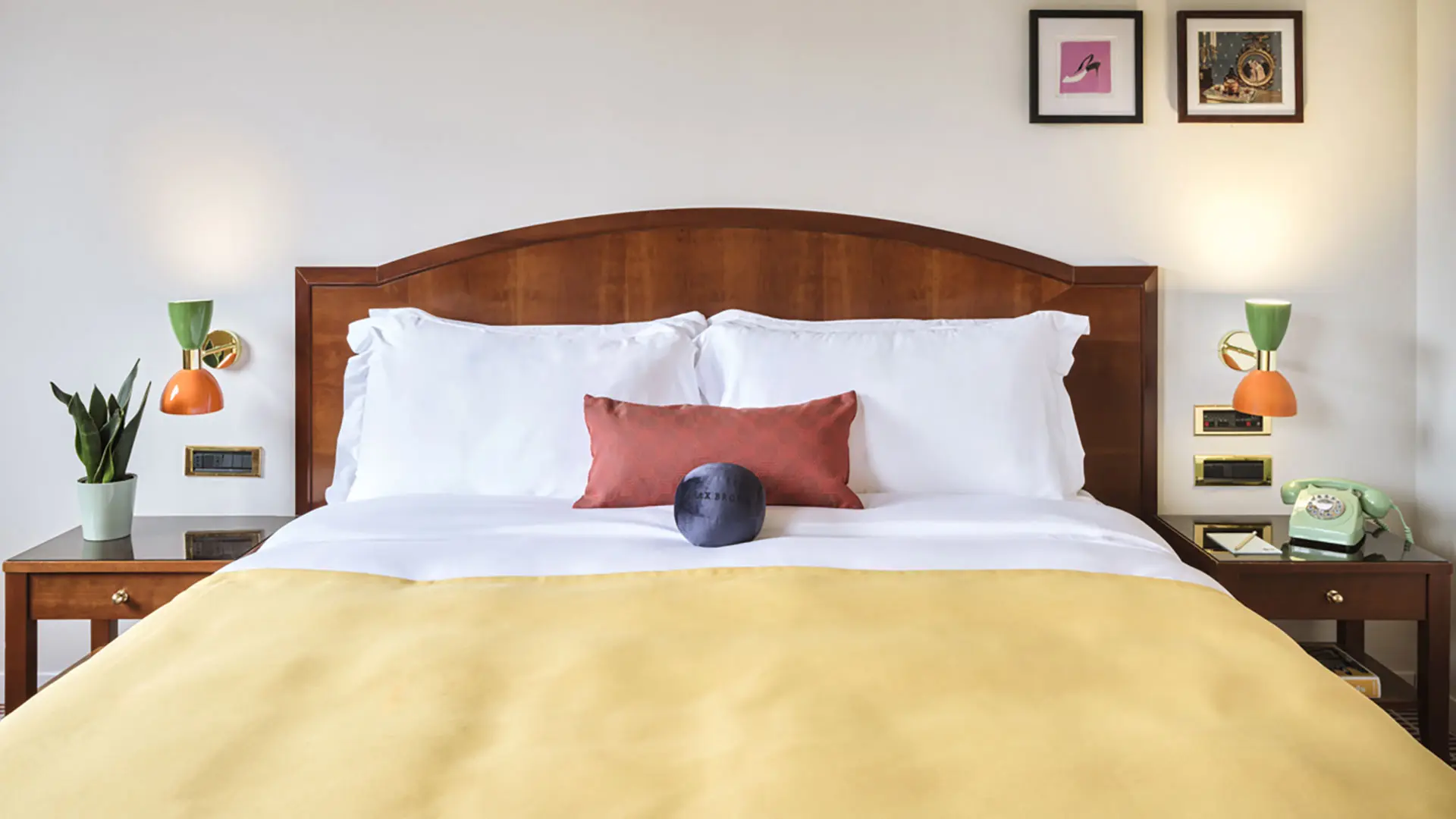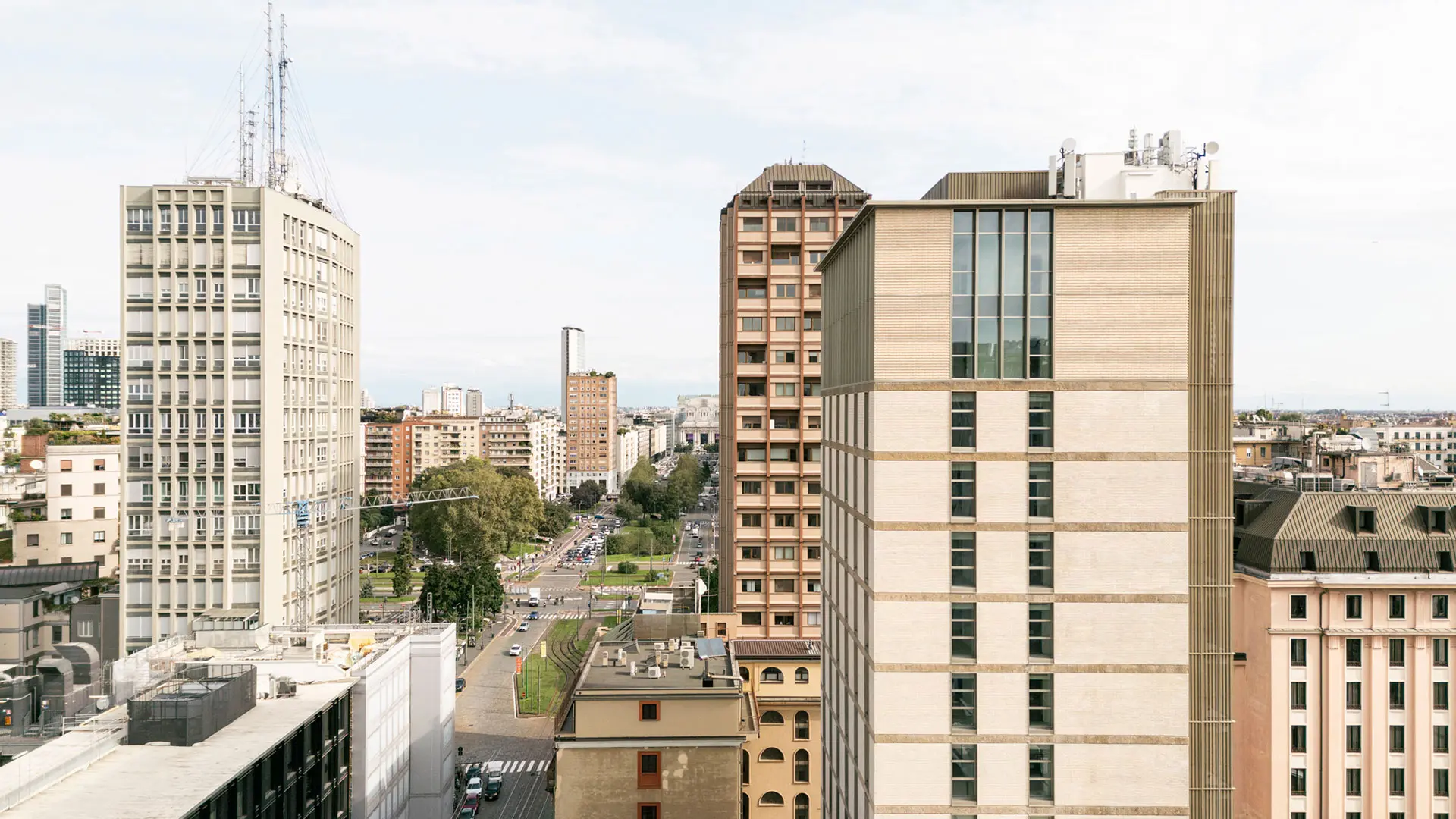In partnership with MiCodmc, a selection of establishments ripe for discovery during the 63rd edition of the Salone del Mobile.Milano, from 8th to 13th April
Back to the cinema: MDFF documentaries explore design in the round
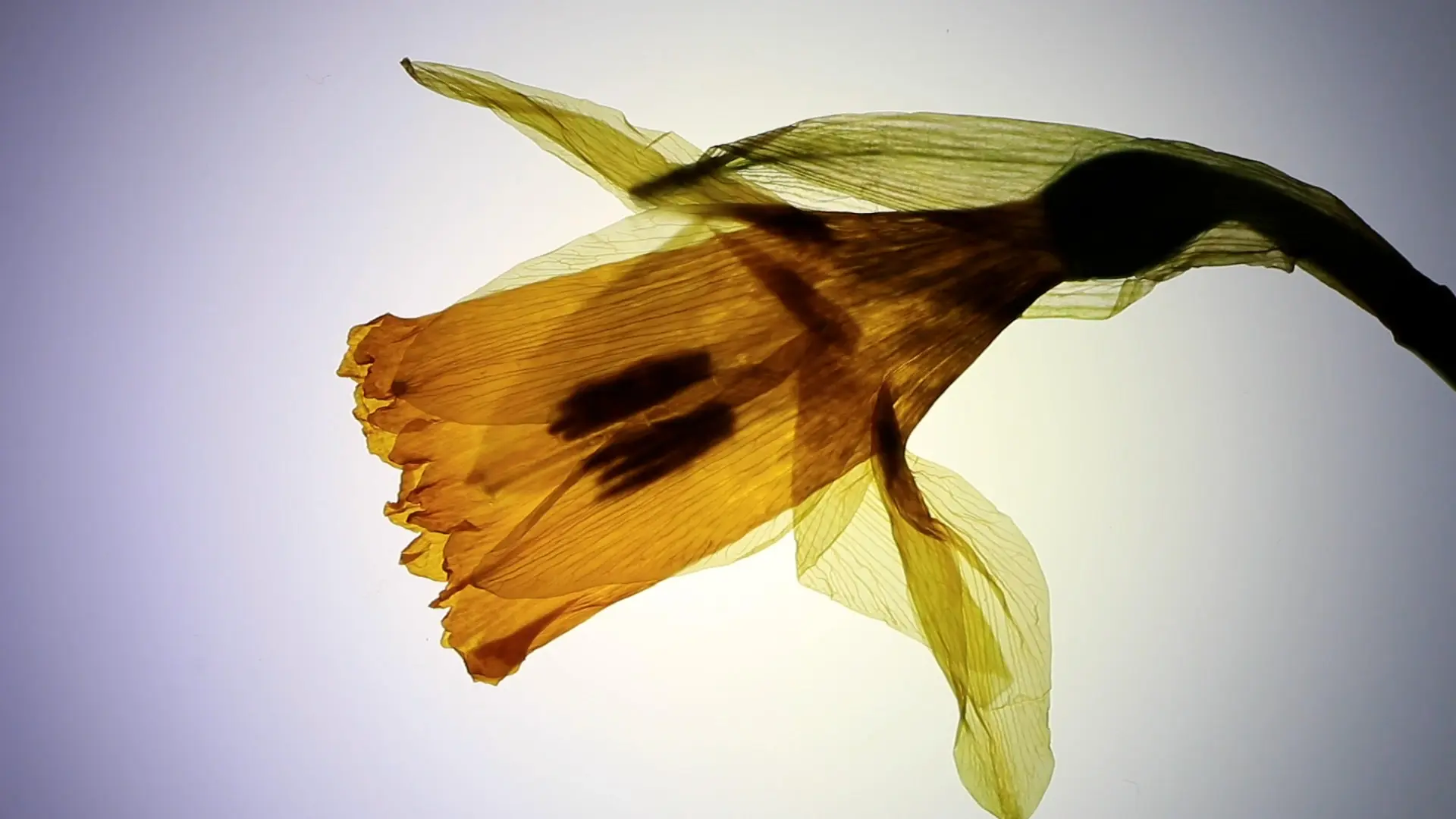
Geo-Design / An Edless Riddle By J.Urreaga Aizarna, S. Quijada Link, E. Massias, S. Fusani – In the Bloom selection, curated by Formafantasma for MDFF 2021
The 9th edition of the Milano Design Film Festival interprets the word “design” in its own right – through design issues on all scales, the processes involved and its influence on society.
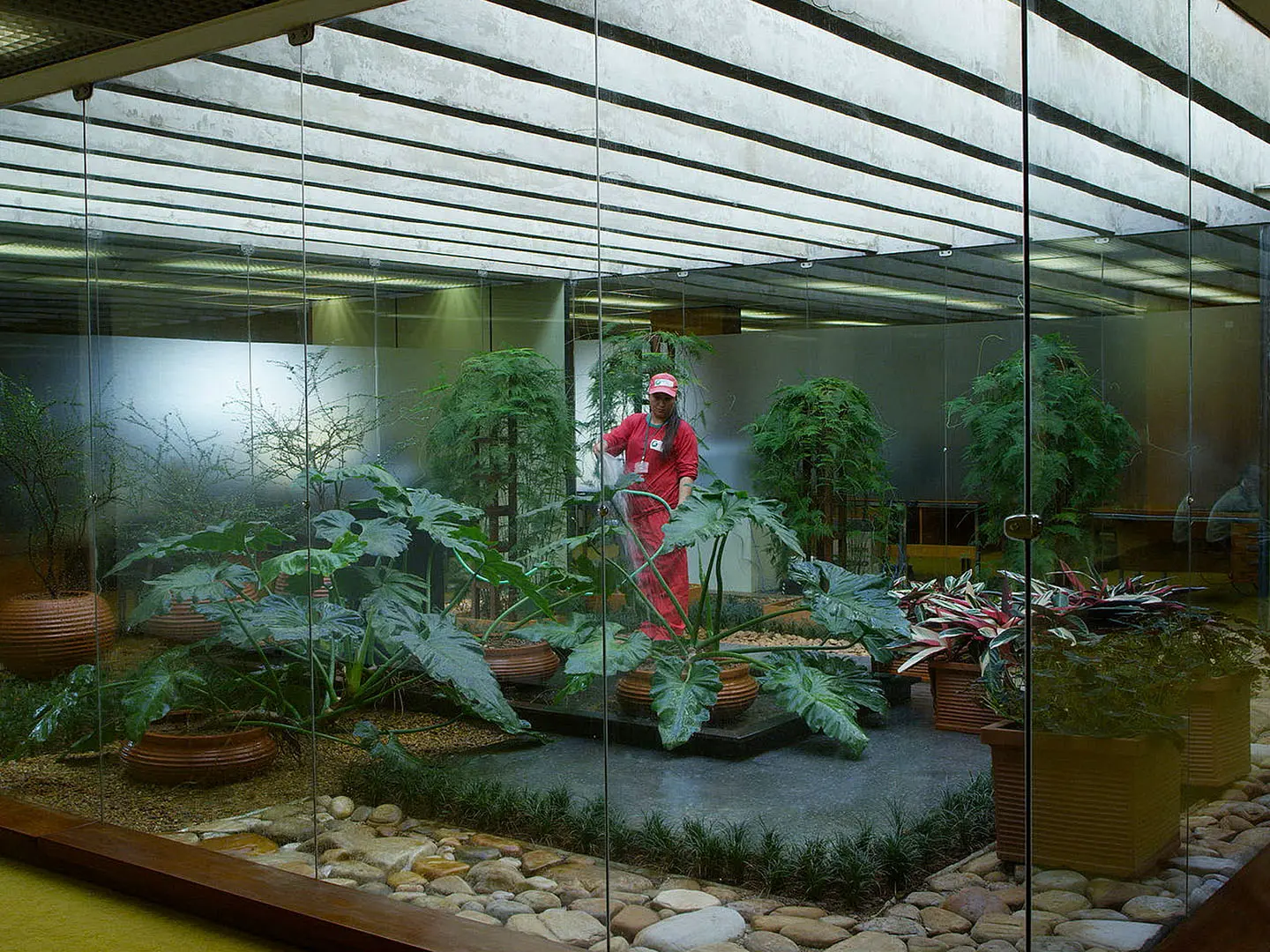
A machine to live in By Yoni Goldstein and Meredith Zielke – How to live by your self in the City
Theatres and cinemas are back to full capacity. An unusual, but much-awaited piece of news. The Milano Design Film Festival will also be back live from 21st to 24th October, at the Teatro Franco Parenti and with three separate events at LOM, Villa Scheibler and the headquarters of the Milan Order of Architects PPC. However, after the entirely digital previous edition, it is also being streamed on its own platform, where all the films can be viewed by subscription at any time during the four-day festival. Running in parallel, the events at the Teatro Franco Parenti will follow a set programme, with a number of screenings and encounters between filmmakers and protagonists involved in the films.
With the sector in recovery, we can finally breathe again. 23 – out of a total of 63 short, medium and full-length films – were made in Italy. The rest are from Europe, the UK, Japan, Argentina, Chile, Canada and the United States. Explorations of the most topical issues have also restarted, increasingly indissolubly linked to the urgent need for reconciliation with our natural and built environment, and the way in which this is happening. This leads seamlessly into the role of the processes for producing objects and the construction, architecture and design of cities . The commitment, the examples and the analysis shown on various sides are making up new sort of cultural melting pot that speaks many different languages and unites (almost) everybody.

Becoming Animal By Emma Davie and Peter Mettler – In the Bloom selection, curated by Formafantasma for MDFF 2021
Formafantasma has come up with an exploration of the relationship between the animal and plant “species” that inhabit our planet. The title says it all: I, You and It: Stories of Entanglement between Species. The curators of the 2021 Bloom section, focusing on the relationships between man and nature, have brought together a series of experimental and investigative films that invite reflection in the round. While apparently not strictly within the realm of design, the idea falls entirely within that of designing and producing. Leafing further through the programme, a practical response would appear to come from the reflection on Belgian design by Alexandre Humbert (The Object Becomes) and the representation and new lexicon of objects. In counterpoint, there is the history and life of the plastic monobloc chair, one of the ugliest, most disputed and globally best-selling (Monobloc by Hauke Wendler). Meanwhile the aim of the collective Campo Abierto (A Bus Stop for Tathuen) is to emancipate the local Argentine communities through the valorisation of craftsmanship and traditions, as per the following statement: “There is no future in architecture without a conciliatory memory between peoples in conflict.”
The other relationships explored by the documentaries are conflicts, history, memory and society, with stories of edifices (The Building by Andréas Lang) and cities (to name but a few: Rift Finfinnee by Daniel Köter, Where to With History? by Hans Christian Post, Sabaudia by Lotte Schreiber, and Travelogue Tel Aviv by Samuel Patthey). Not surprisingly, many of the 26 films vying for the AFA Architecture Film Award by Grand Seiko are devoted to this theme. The winners will be announced during a ceremony at the end of the festival (24th October) with a dedicated screening. They evidence the urgent matters to which architecture is called to respond, as also highlighted by the documentary that does not form part of the competition and is making its global premiere, The Importance of Being an Architect, by Giorgio Ferrero and Federico Biasin, as seen through the eyes of Antonio Citterio and Patricia Viel who, amongst other things, reflect on responsibility and context.
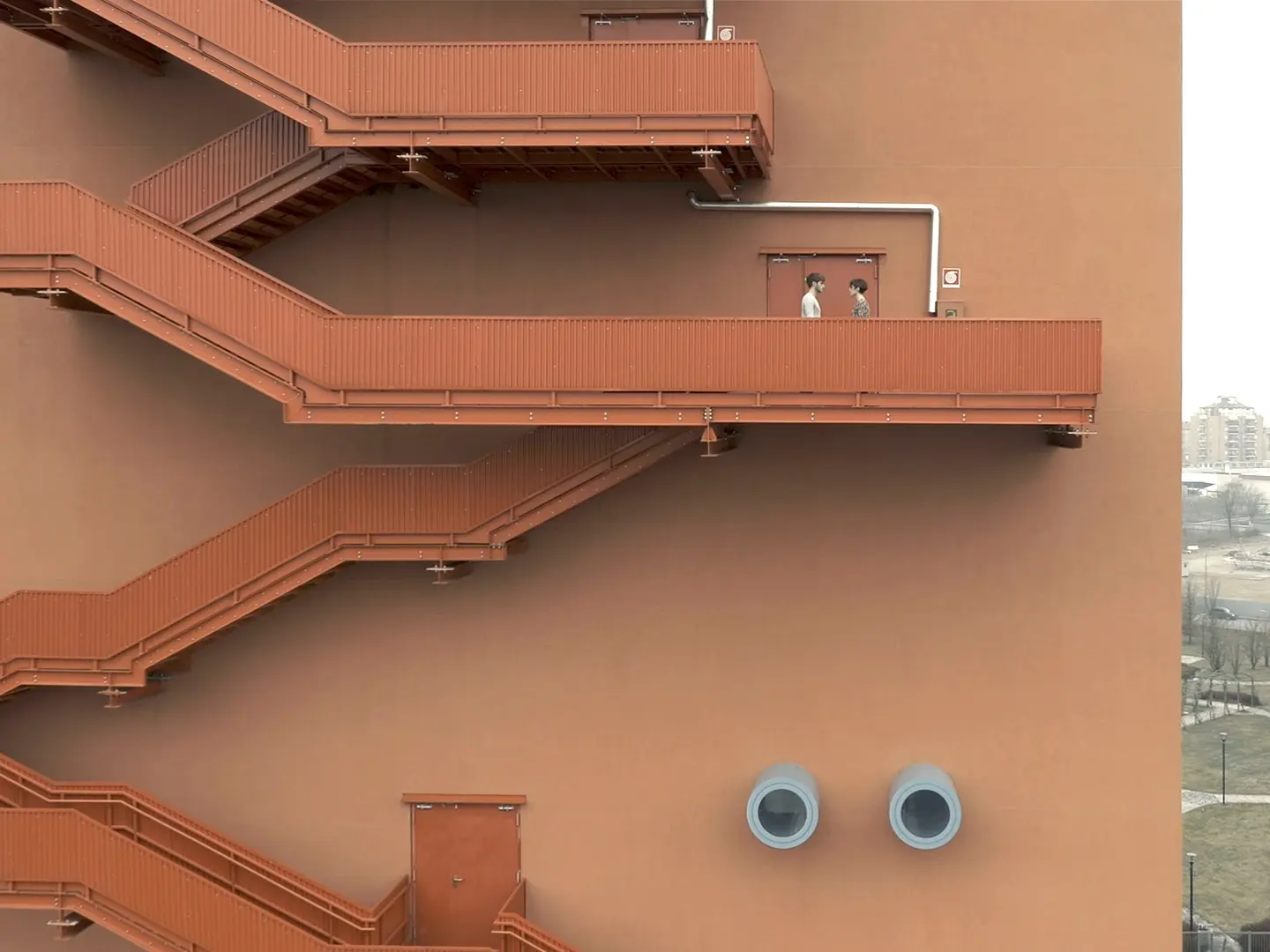
Senza Orfeo By Ernesta Caviola – IULM 6 Building, Milan By Studio 5+1AA
Any mention of context makes one think about landscape, which is where ideal and real relationships are made. As in a super-imaginary geographical threshold, Via Emilia, made up of objects, houses, streets and people (Openings / Sguardi Oltre il Limite by Francesca Molteni and Mattia Colombo) and a 4,000-kilometre journey along the green hydrogen pipeline, invisible to the human eye, in a composite territory (The Thin Line by Giada Ripa). Landscape is also the subject of the show by the architects and guest curators Andrea Barreca and Giovanni La Varra, who have leveraged the opportunities offered by film to scrutinise Italy through the lens of foreign filmmakers, with four classic films d‘auteur both old and new. Enshrining the relationship between film and architecture.
A whole day (Saturday 23rd October) will be devoted, compendium-style, to a public mobilisation initiative. It took off in June with an open letter designed to set out eight actions for a truly sustainable development intervention for cities and the protection and preservation of the territory, promoted by two architects - Andrea Boschetti and Alfonso Femia and signed by more than 600 citizens, sectoral professionals and not. Naturally the two Talks, one conversation and a lecture, will provide a counterpoint to the five films in the programme that touch on the themes tackled in the debates to a great extent than the rest.
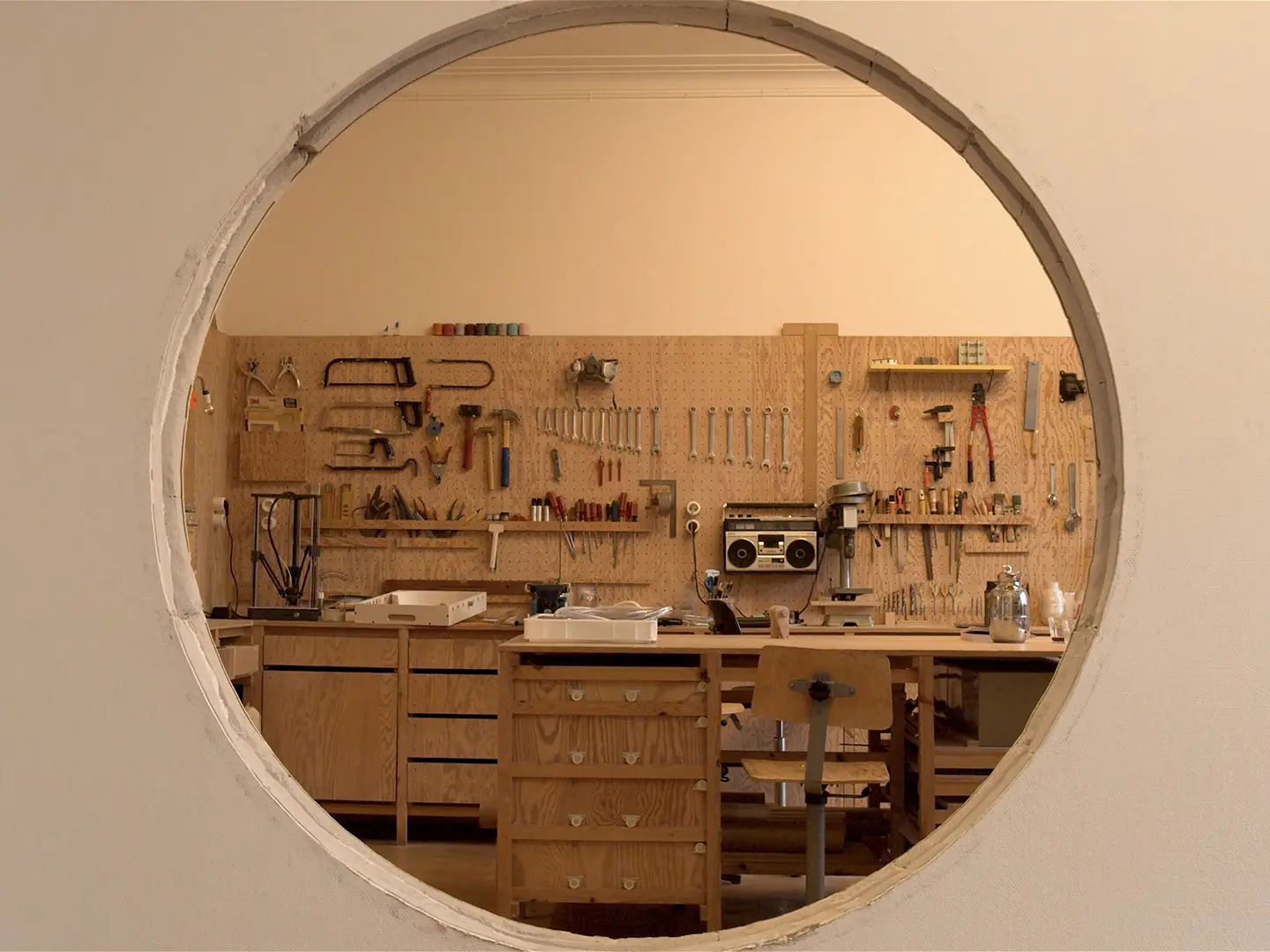
The object becomes By Alexandre Humbert. Nine Belgian design experience
Then there are the individual stories, sometimes narrated in an eccentric manner fuelled by the eccentricity of their protagonists: Lina Bo Bardi, Remo Buti, Ciarmoli Queda, Hangar Design Group, Italo Rota, Carlo Scarpa and more, who always had something to teach us. There are individual stories that become multiple (MACRO Asilo. Il Museo di Tutti by Giorgio de Finis and In corso d’Opera by Riccardo Apuzzo). They make up a lengthy list, and the viewpoints are even more so, enough to make it surprising that they entirely come under the term “design.”
www.milanodesignfilmfestival.com


 Stories
Stories




